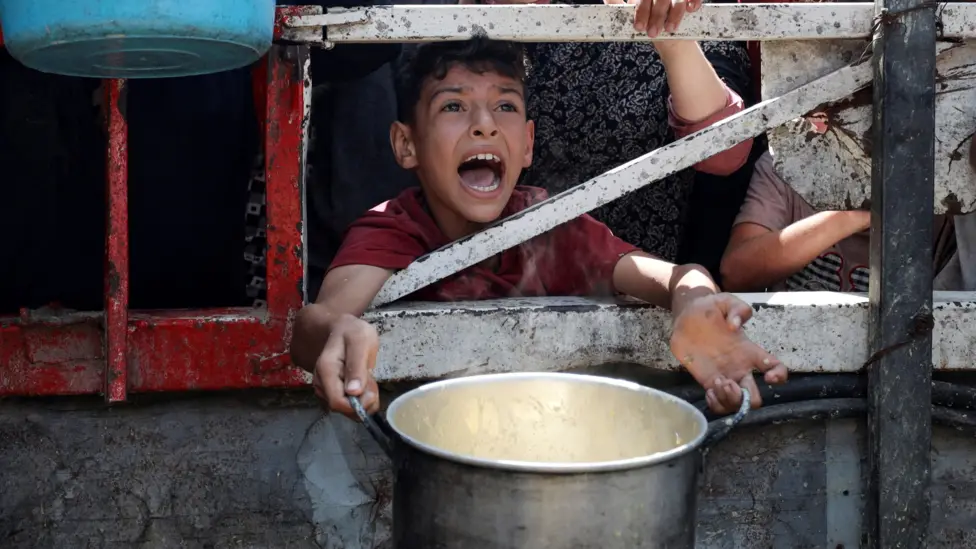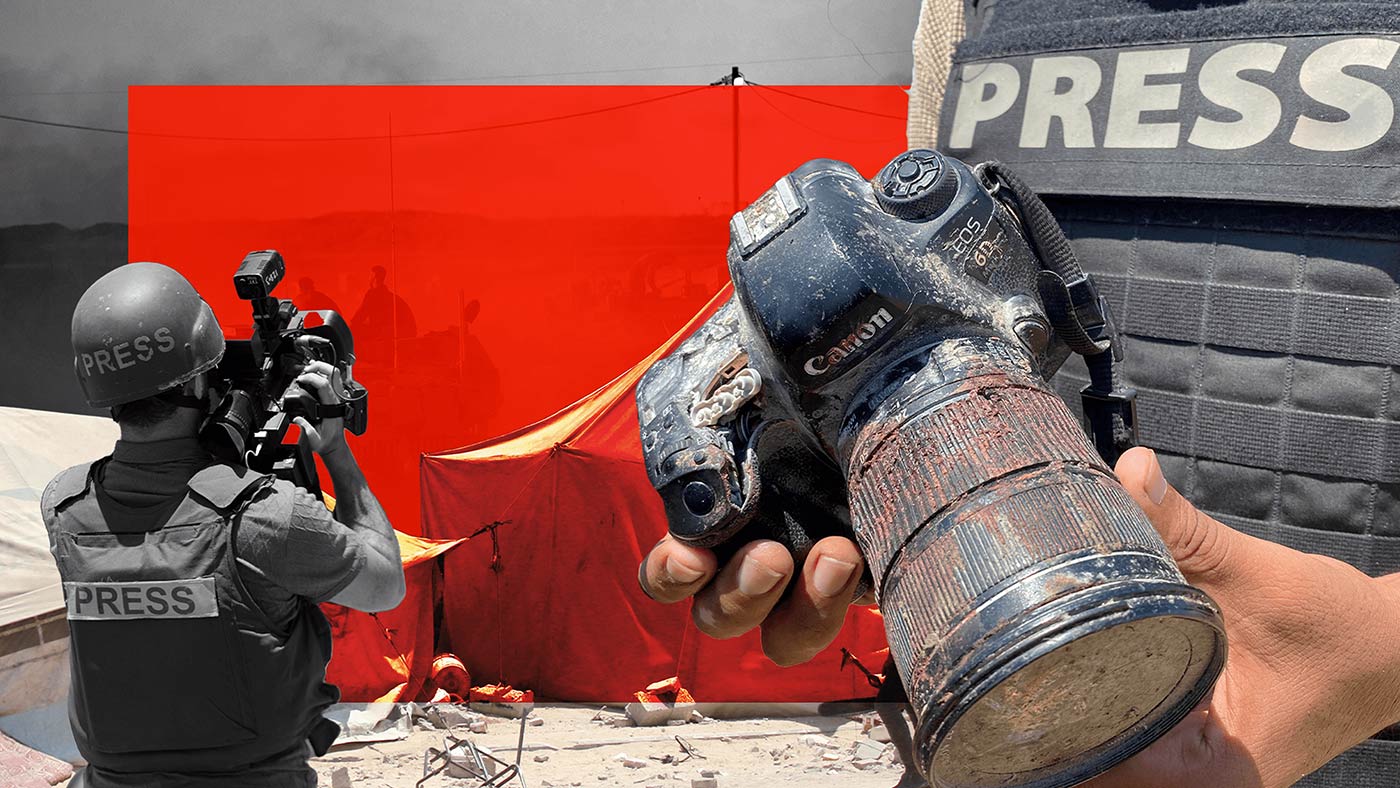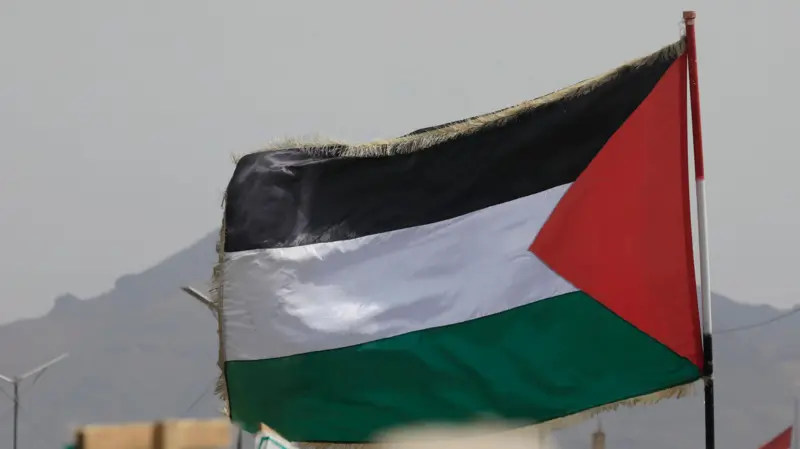The struggle for one meal in Gaza
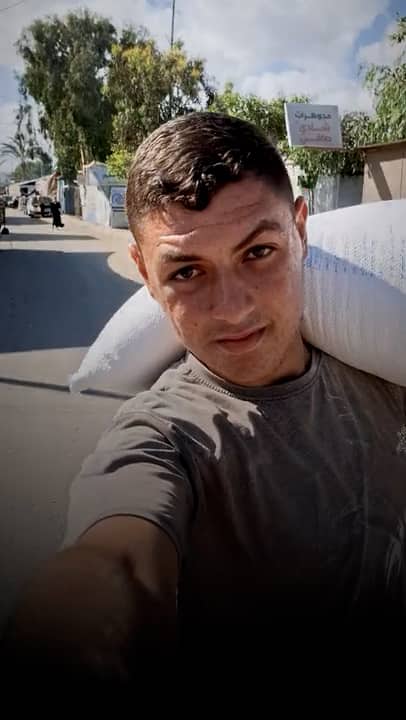
As the sun sets over a displacement camp in southern Gaza, 20-year-old Mosab al-Trtori crouches by a row of pepper, tomato and aubergine seedlings planted in the sand.
Salty water and poor soil stop most of them yielding crops, but his occasional small harvests help feed his family in a place where even the most basic ingredients can be impossible to find, and where the day is often dominated by the search for food.
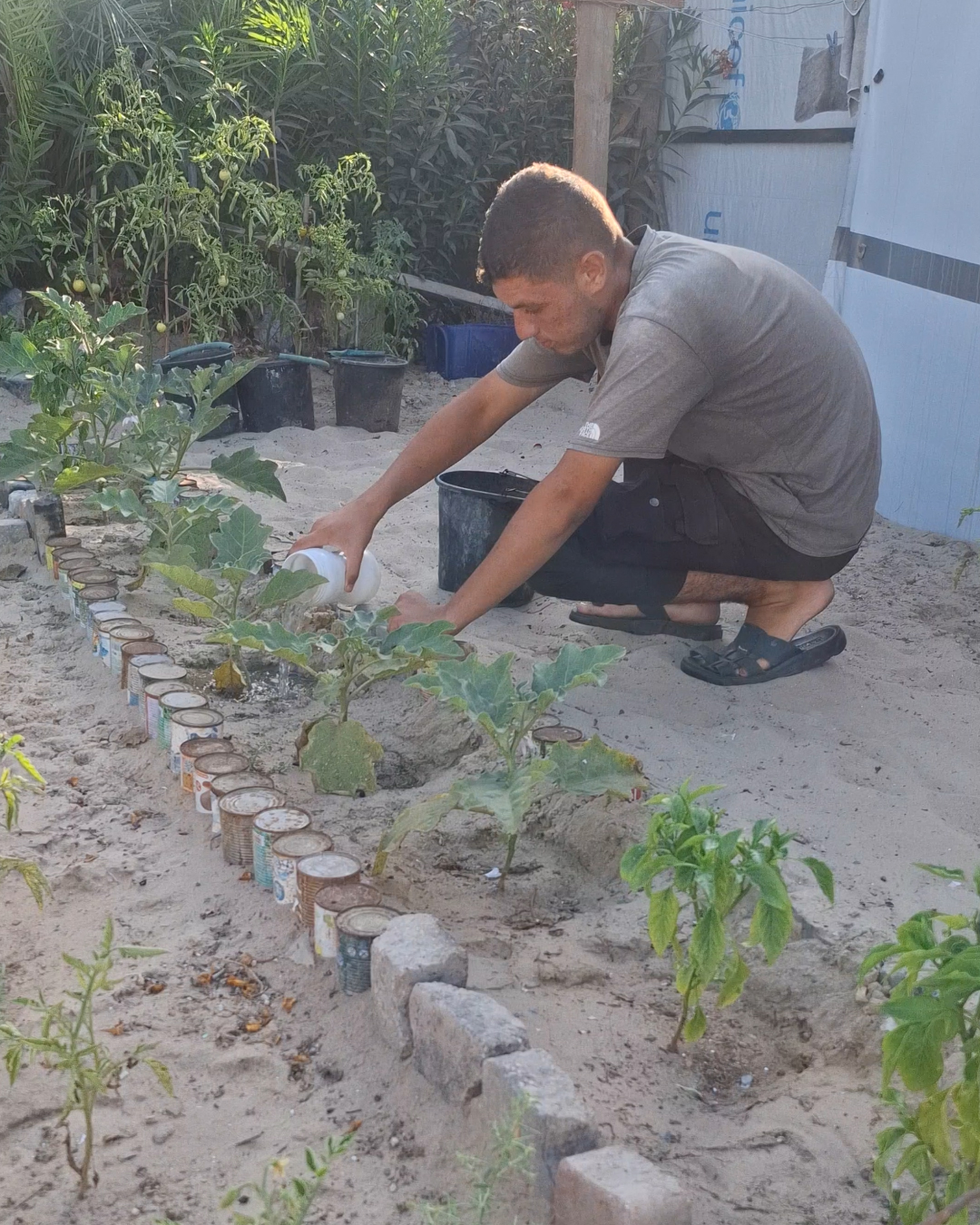
Mosab is luckier than most in Gaza - his family can afford to buy food, unlike many other civilians.
Before the war, they lived in a large two-storey house in the southern city of Rafah, where he and his siblings each had their own room. Mosab was an engineering student and also ran a YouTube gaming channel.
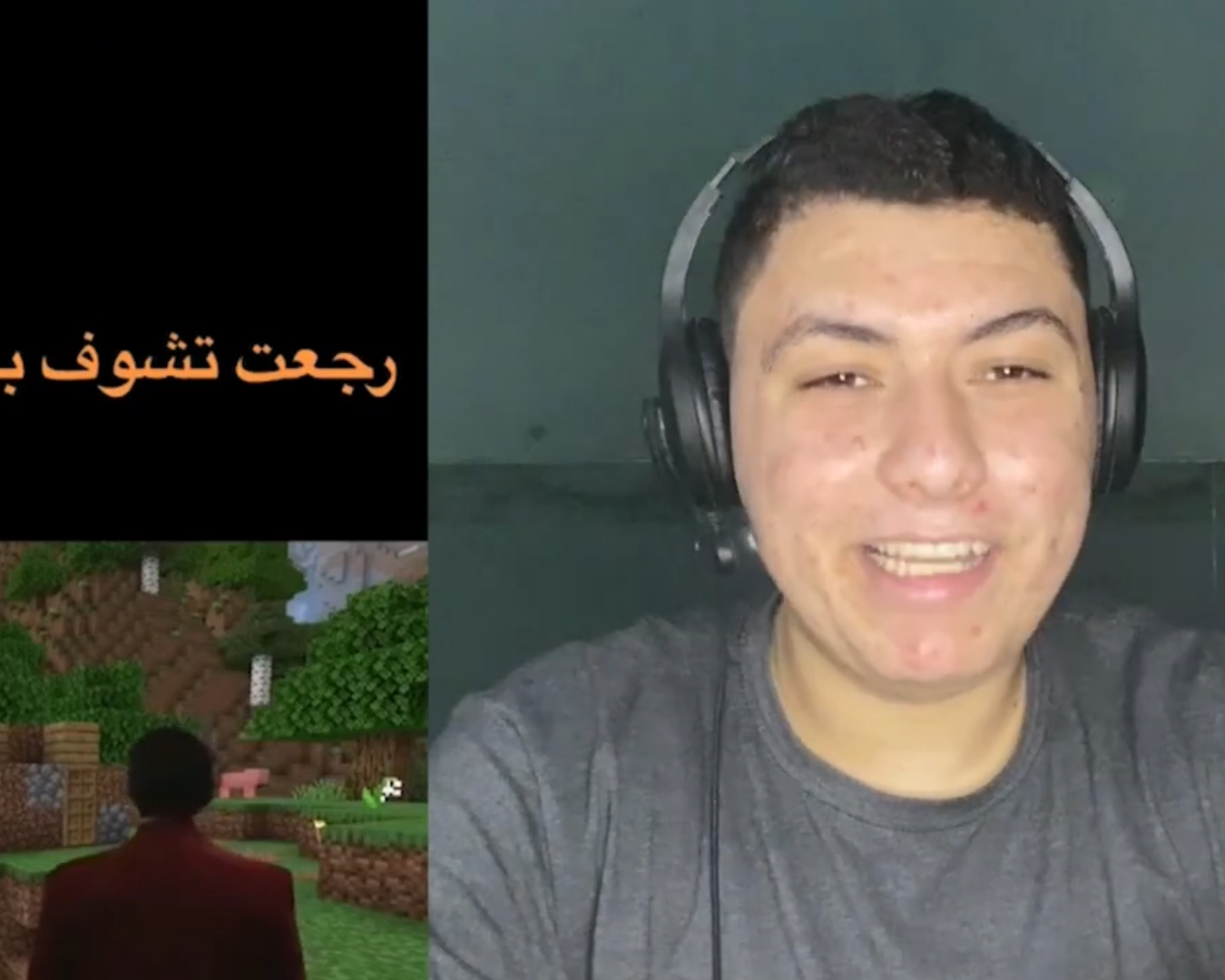
Now, Mosab lives in the sprawling al-Mawasi camp on the Mediterranean, sleeping in tents with eight family members: his parents, three siblings, grandmother, and two cousins, whose immediate families, he says, were killed in Israeli strikes.
He now uses his social media accounts to document his life in a war zone.
Food is constantly on people’s minds. “At times we’ve wished for death rather than to continue living in these conditions, always thinking about food and water,” he says.
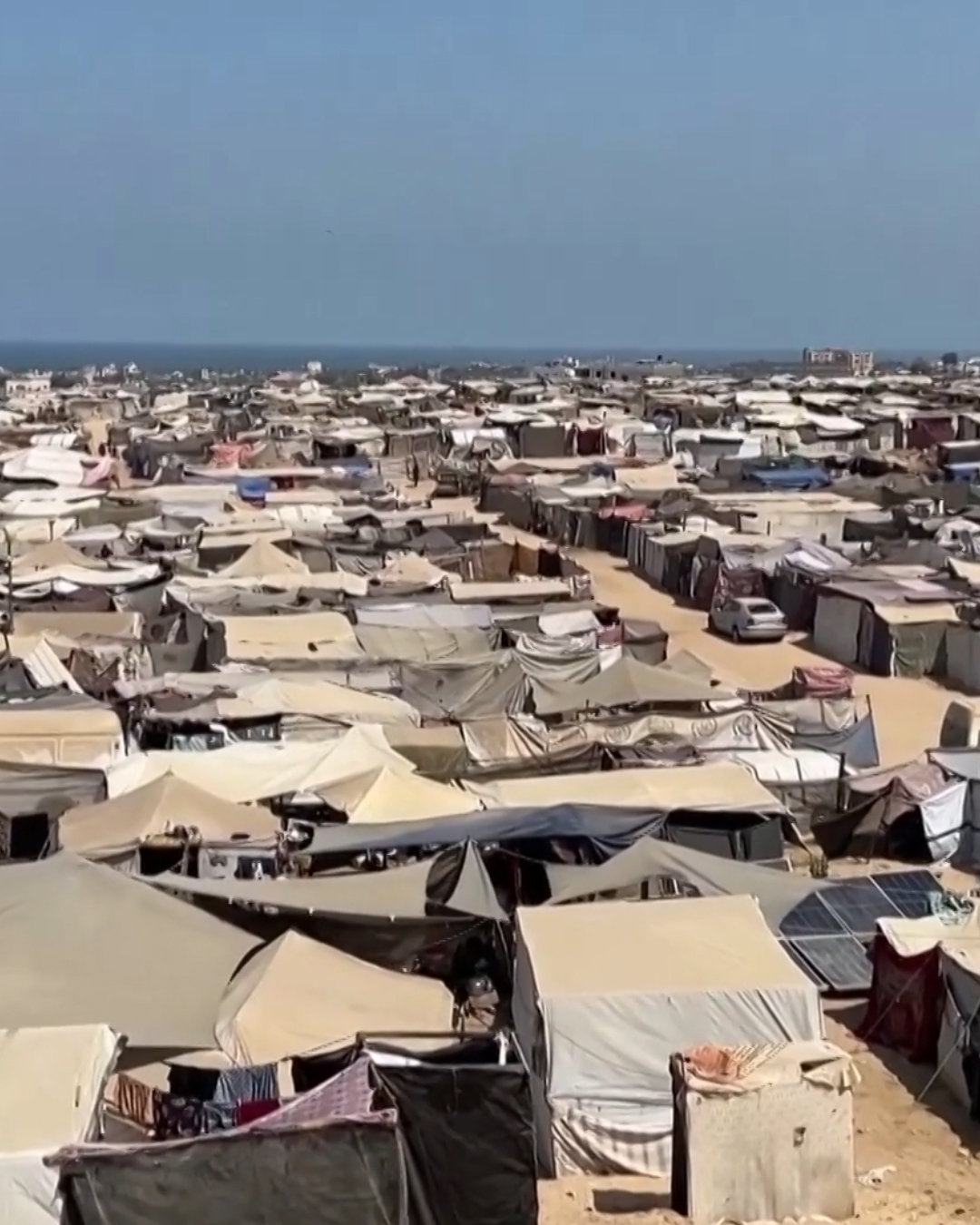
Israel does not allow international journalists free access to Gaza, but Mosab shared with the BBC a series of videos, voice notes and photos captured over a single day last month that reveal the struggle for him and others to find food, water, and cooking fuel.
He was searching for the ingredients to make mujaddara - a popular Arab dish made of lentils, rice, onions and sometimes garlic.
Gaza has been ravaged by hunger and malnutrition, with a United Nations-backed food security body confirming famine in Gaza City for the first time in August. Over that month alone, there were 185 deaths as a result of malnutrition, according to the Hamas-run health ministry.
Aid agencies, senior UN officials, the UK government and others all say the famine and starvation in Gaza are a result of Israel’s actions. Prime Minister Benjamin Netanyahu has repeatedly denied starvation is taking place and has said that, where there is hunger, it is the fault of aid agencies and Hamas.
Every day, Mosab heads to the street markets. His family sends him because he is the best haggler, he says.
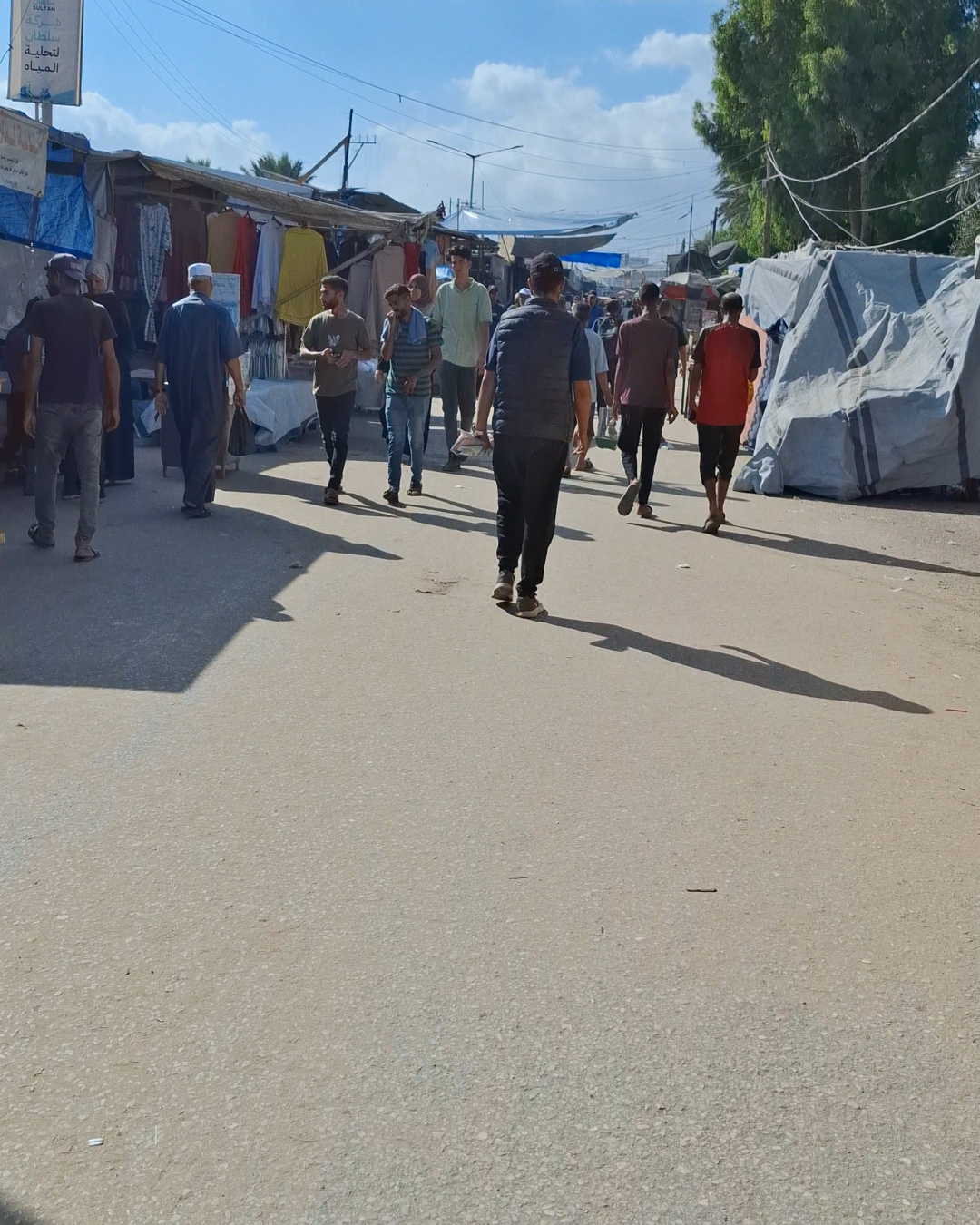
Despite its simple ingredients, mujaddara is now reserved for the middle classes, he says.
While those with access to cash can shop in markets, others in Mosab’s camp rely completely on aid. The United Nations says more than 2,000 people have been killed around aid sites and convoys in recent months. In August, it said most of the killings were by the Israeli military. Israel denies this.
“Just yesterday, our neighbour was injured [in Israeli military gunfire], and another neighbour was also injured - one of them took two bullets,” Mosab says.
He feels guilty that others around him have no choice but to go to the aid sites and says he is in 'constant fear' that his family's relatively privileged situation will worsen.
Some of the food on sale at the market comes from aid lorries - stolen by gangs and sold on to vendors.
Stock is limited, some of it rotten, and the lack of available produce has dramatically driven up prices, making even basic items unaffordable for many, he says.
He spends two hours walking in scorching heat to find, and haggle over, ingredients. Staples like onions, which he knows will lift his family's spirits, are a luxury in Gaza.
A single clove of garlic costs him £2 ($3) - about 10 times what his family used to pay for a pack of four whole bulbs.
He also manages to track down the other ingredients he needs. “We bought brown lentils and whole lentils, rice, I also got some tomato sauce to go on top, and a little onion, because mujaddara is all about the onions,” he says.
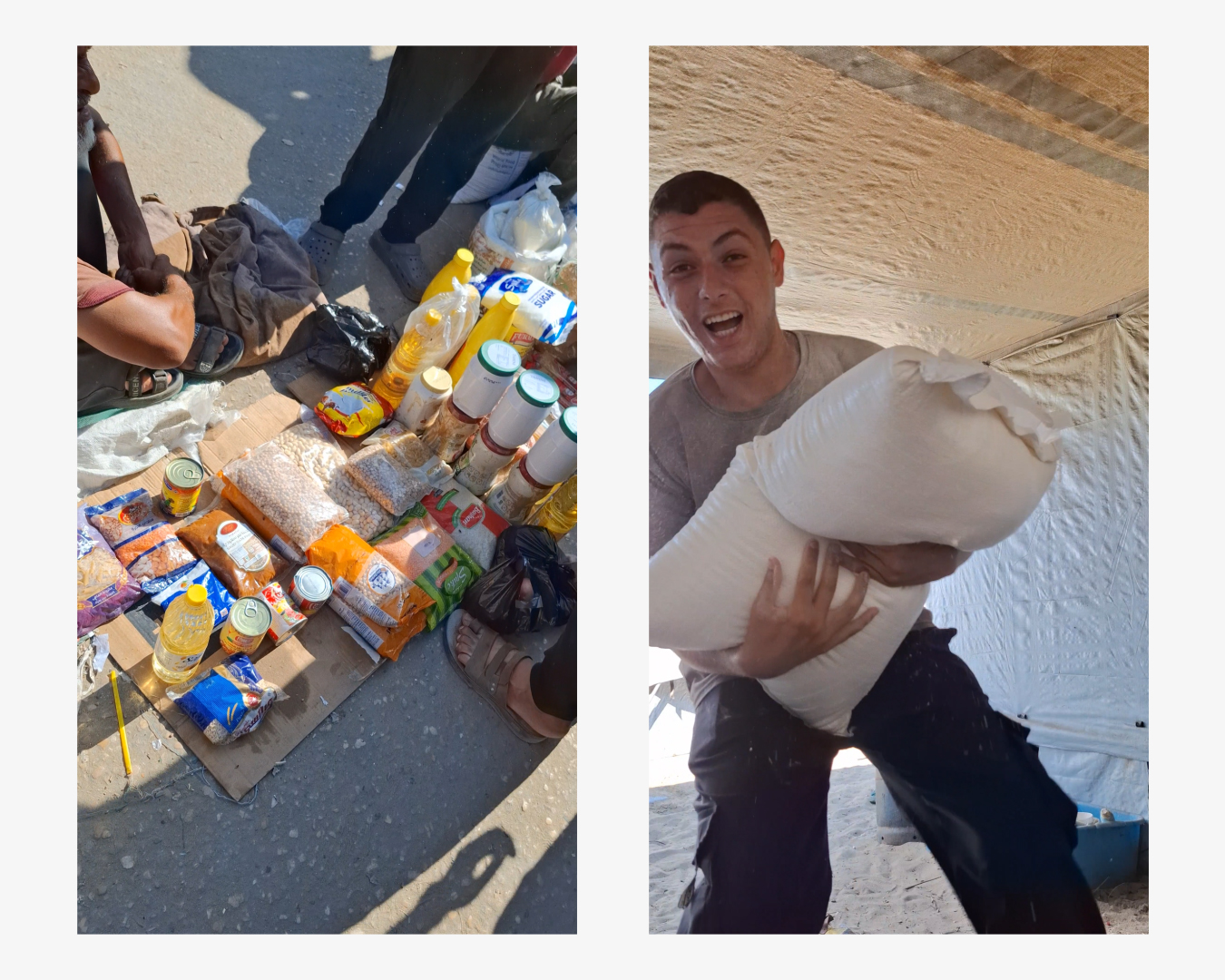
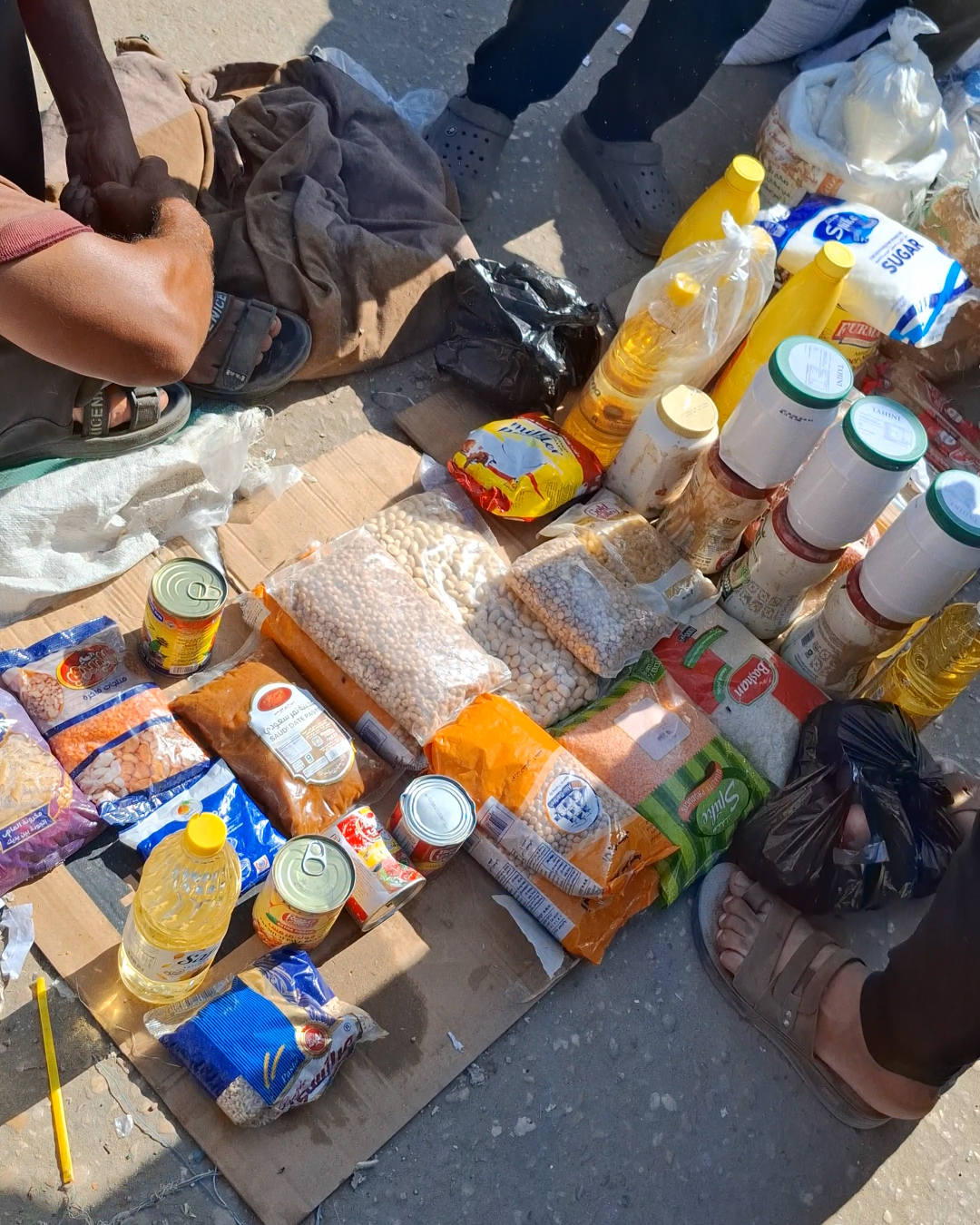
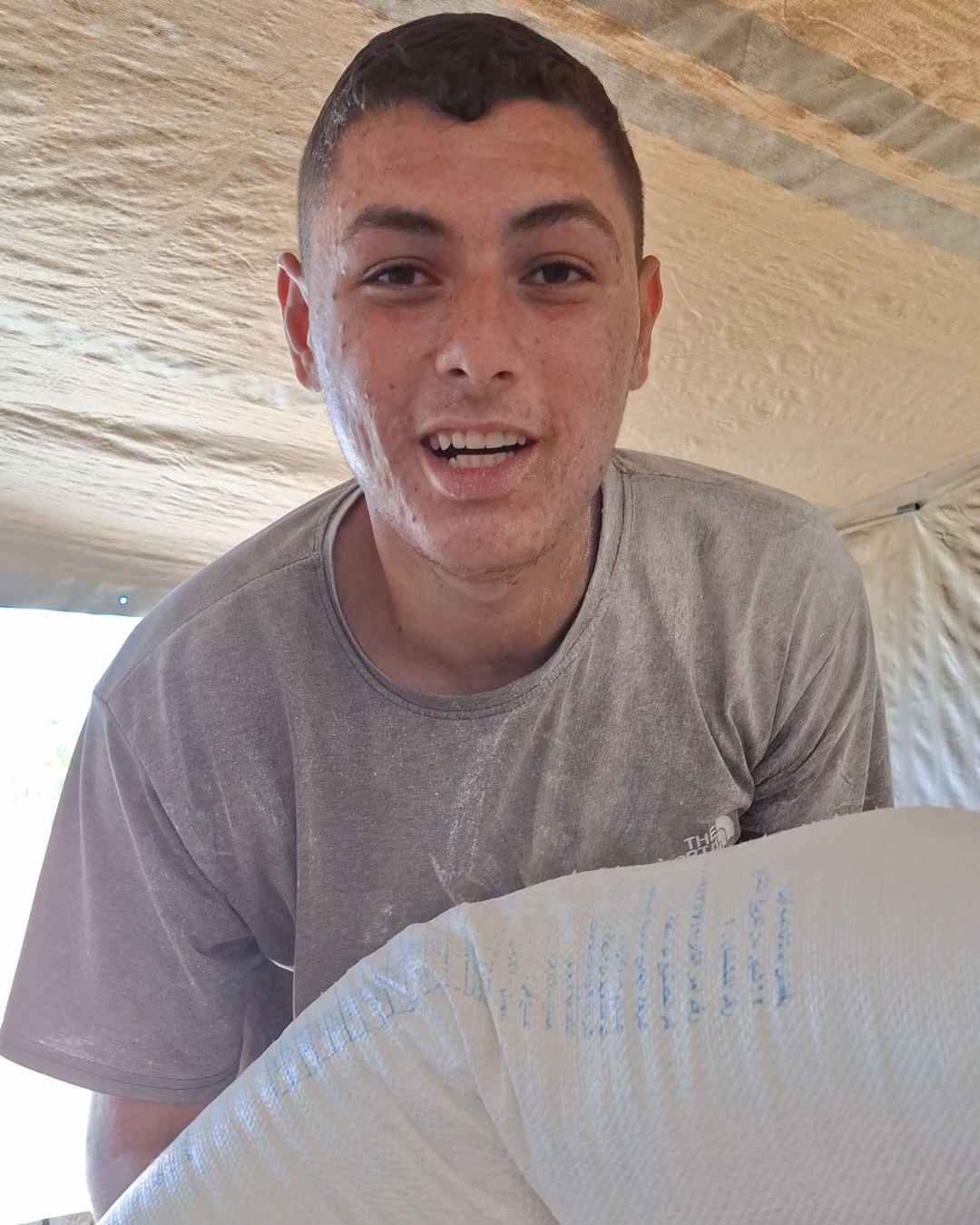
Like food, cash is in short supply in Gaza, as ATMs and banks have been destroyed or ceased operating during the war, and large injections of cash have been barred by Israel, which says they would be used by Hamas.
Mosab says the commission rates the family have to pay to get cash can be more than 50%.
The financial crisis is deepening, he says, and families like his may not be able to sustain even their current standard of living for much longer.
People also directly sell on the goods they have risked their lives for at aid sites.
“They sell it to you, but at an astronomical price. You end up begging them to sell,” Mosab says.
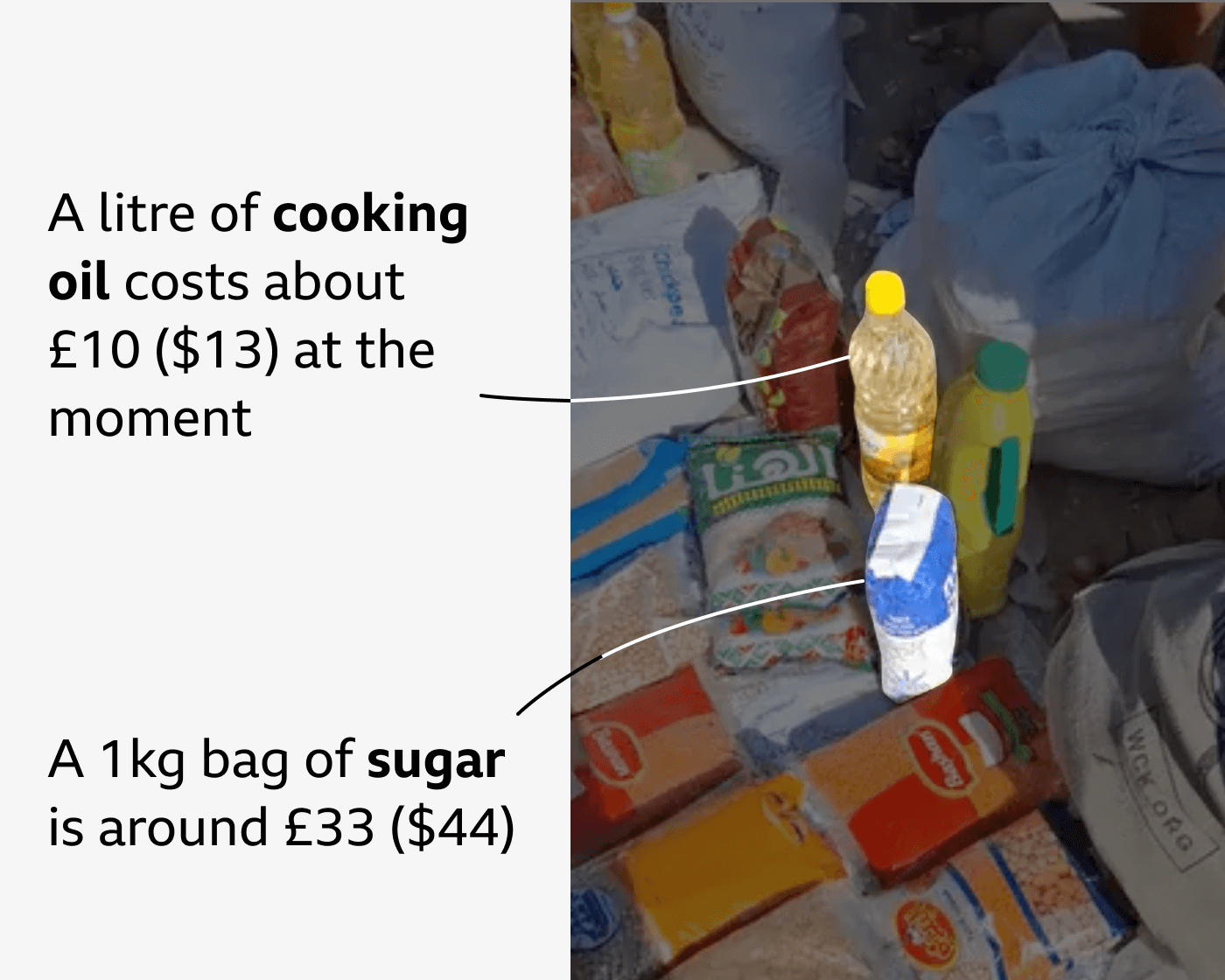
Flour is particularly scarce, he says. Sometimes, rumours circulate that it is available and people rush to the market, only to be disappointed.
That day, Mosab contacted acquaintances and friends and eventually tracked some flour down to make bread, about a 4km (2.5-mile) walk away.
“I managed to pressure the guy into selling me a [25kg] bag of flour for 700 shekels (about £150/$200),” Mosab says - explaining that it is roughly 30 times the pre-war price.
At that rate, a standard 1.5kg bag of plain flour in the UK, currently costing as little as 70p, would cost £9.
“It’s infuriating. On top of that… carrying it is exhausting, and the sun in the middle of the day is brutal, it really drains you.”
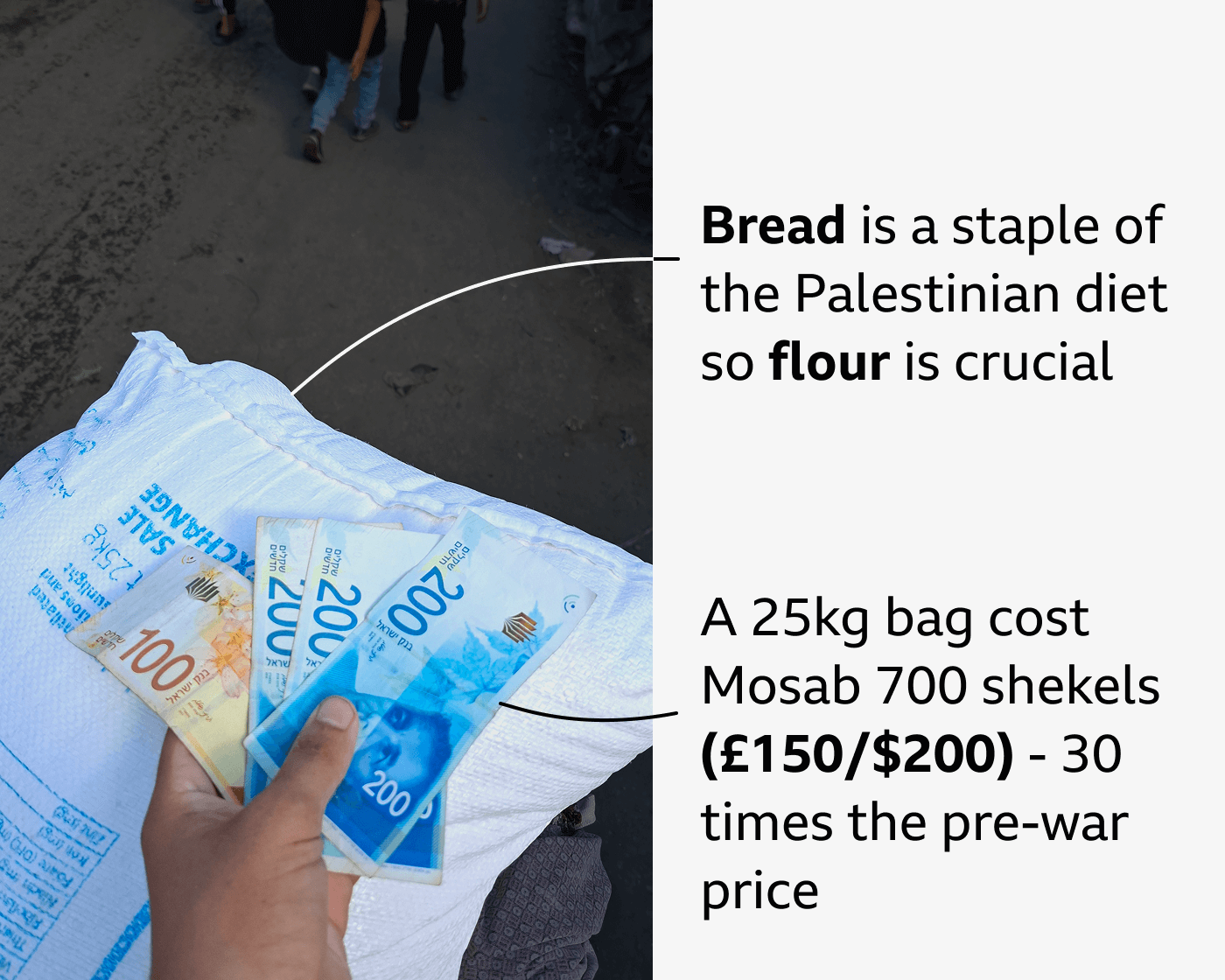
It is not just food in short supply. Much of the infrastructure needed to distribute clean water has been badly damaged or destroyed and most people now rely on sporadic deliveries from desalination plants that are still operating.
When Mosab’s family wake that day, they have a container and a half of water left - about 12 litres.
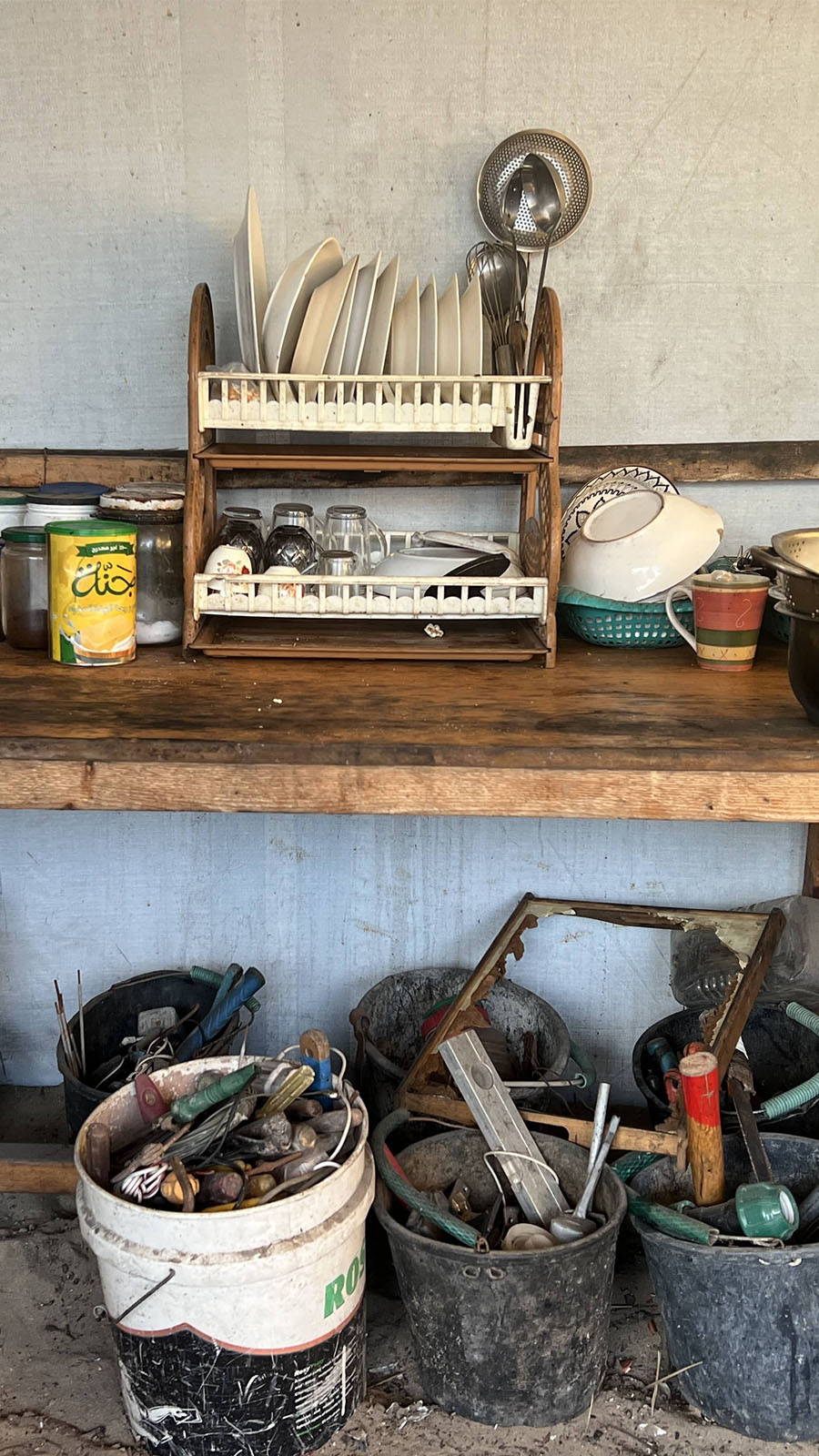
“We’re hoping fresh water arrives. If it doesn’t, we’ll have to go a very long way [to desalination plants]… and the water we’ll bring back won’t really be fresh, but there’s no other option,” Mosab says.
Later in the day, there is elation and chaos at the camp as word spreads that tankers are on their way.
“The whole camp started running without even thinking,” Mosab says.
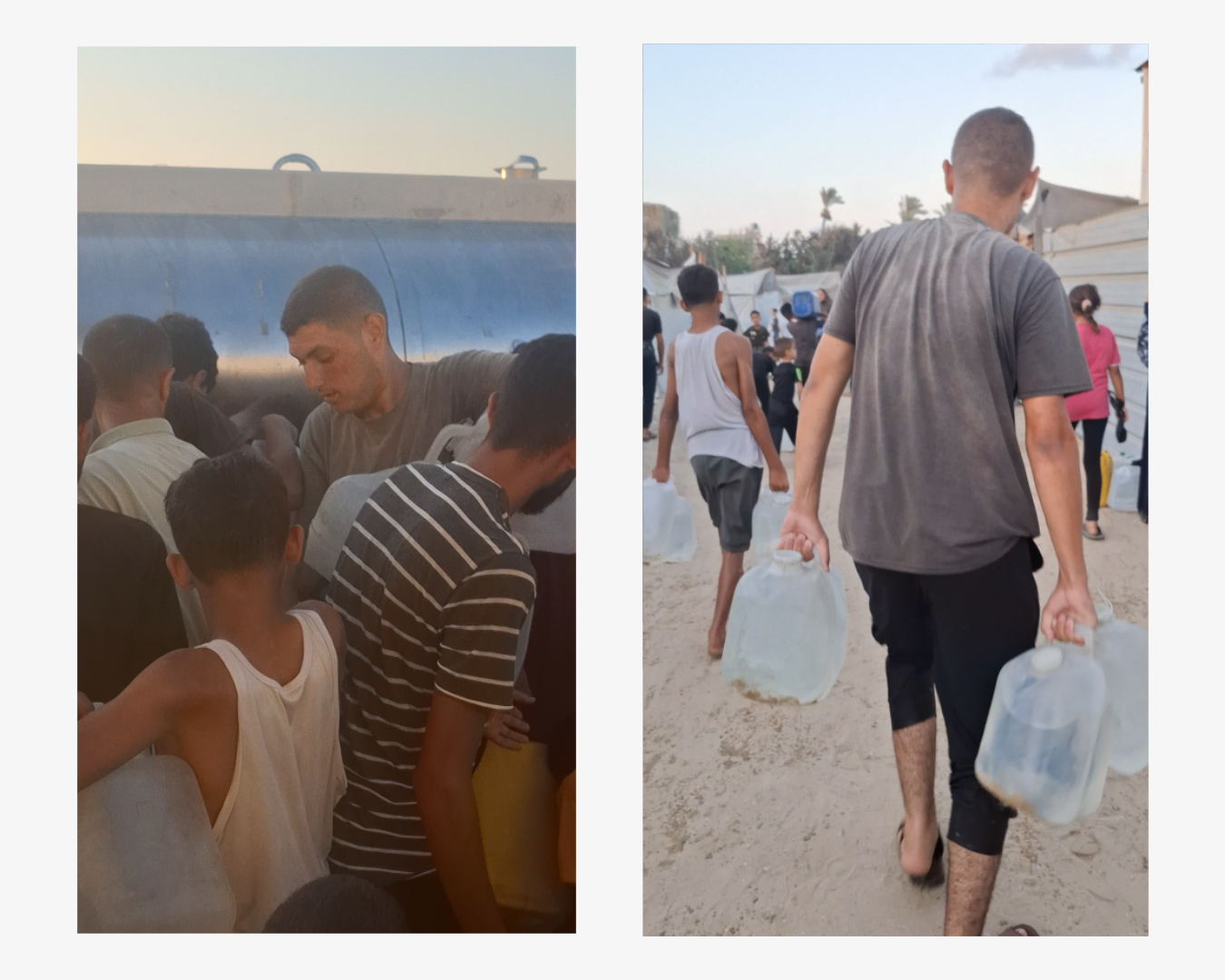
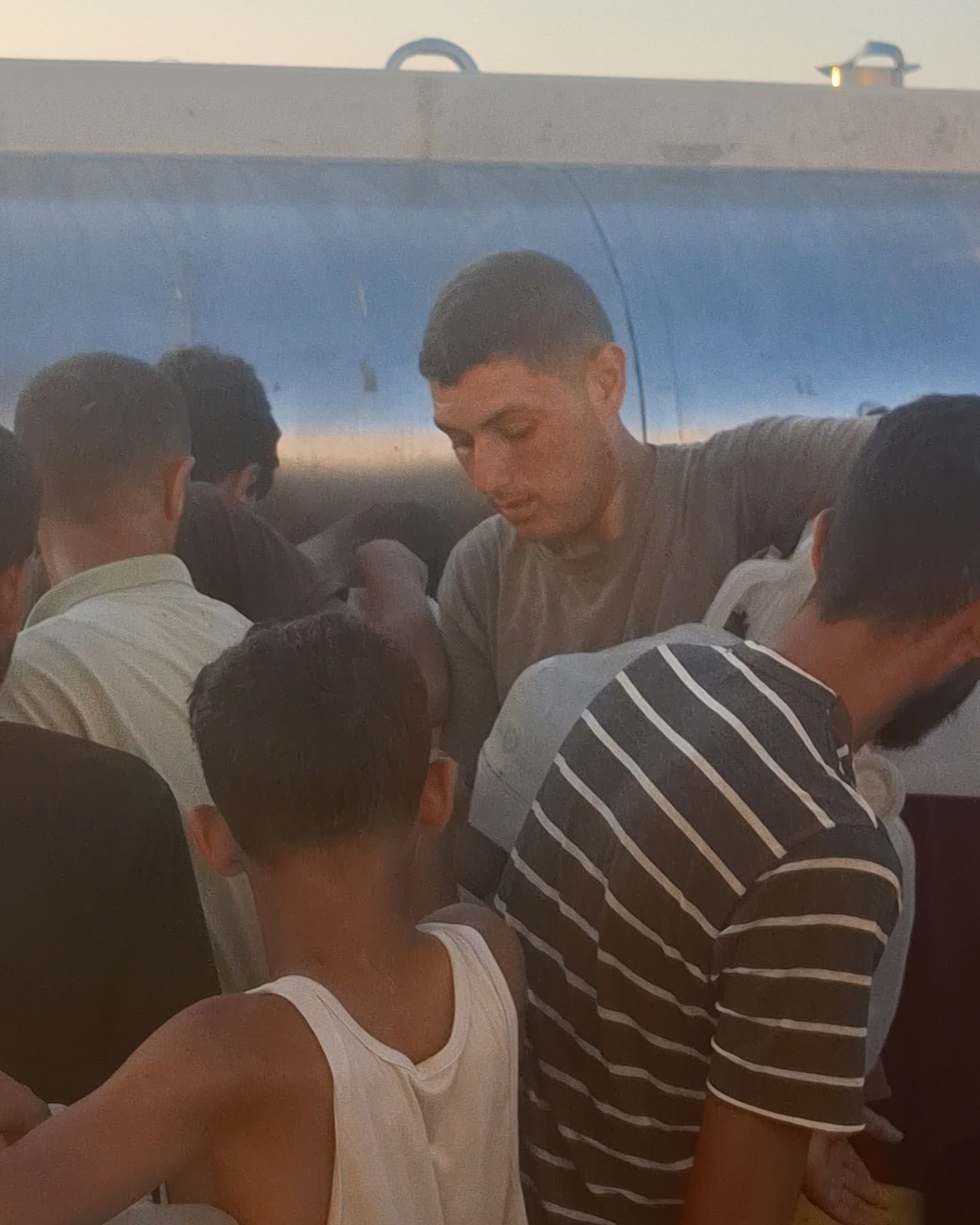
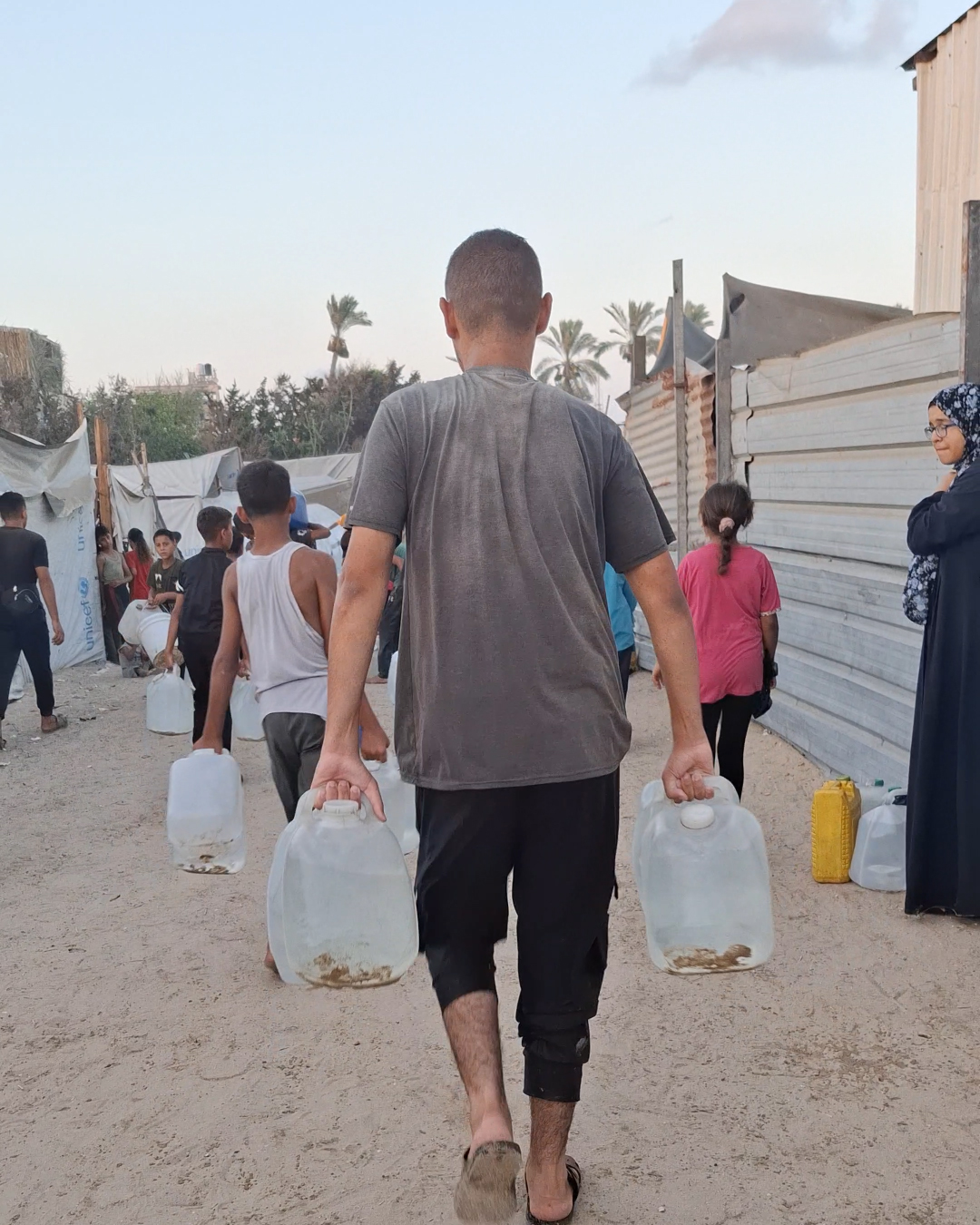
Preparing a meal also requires fuel.
Mosab says a lighter, purchased for about 100 shekels (£22/$30), is shared between 25 families. Like food, water and fuel, the prices of lighters fluctuate - you can now buy one for about half that price, he says.
People in his camp cook meagre meals on makeshift stoves, over fires sometimes stoked by their old furniture.
After returning from the market, he chops wood with an axe and hammer shared among neighbours. His family still have a supply of firewood, bought a few days earlier from a man a long distance away who was willing to accept a bank transfer rather than cash.
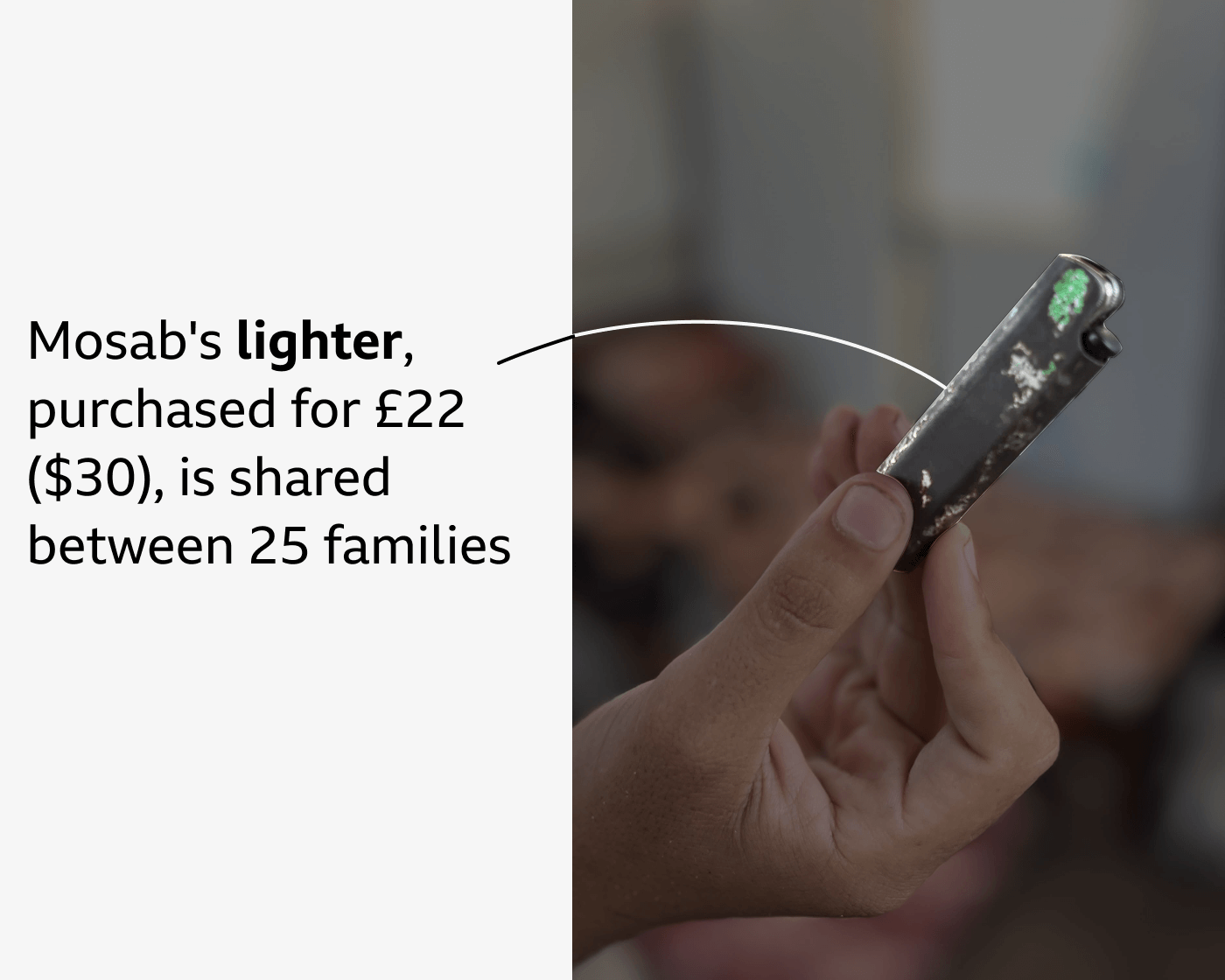
Wood is sometimes sourced from the rubble of homes bombed by Israeli forces. Some people sell debris in exchange for cash, Mosab says - some people can’t afford wood at all.
Splitting the wood is exhausting, and Mosab cuts himself twice in the process.
“God willing, the days of gas will come back,” he says.
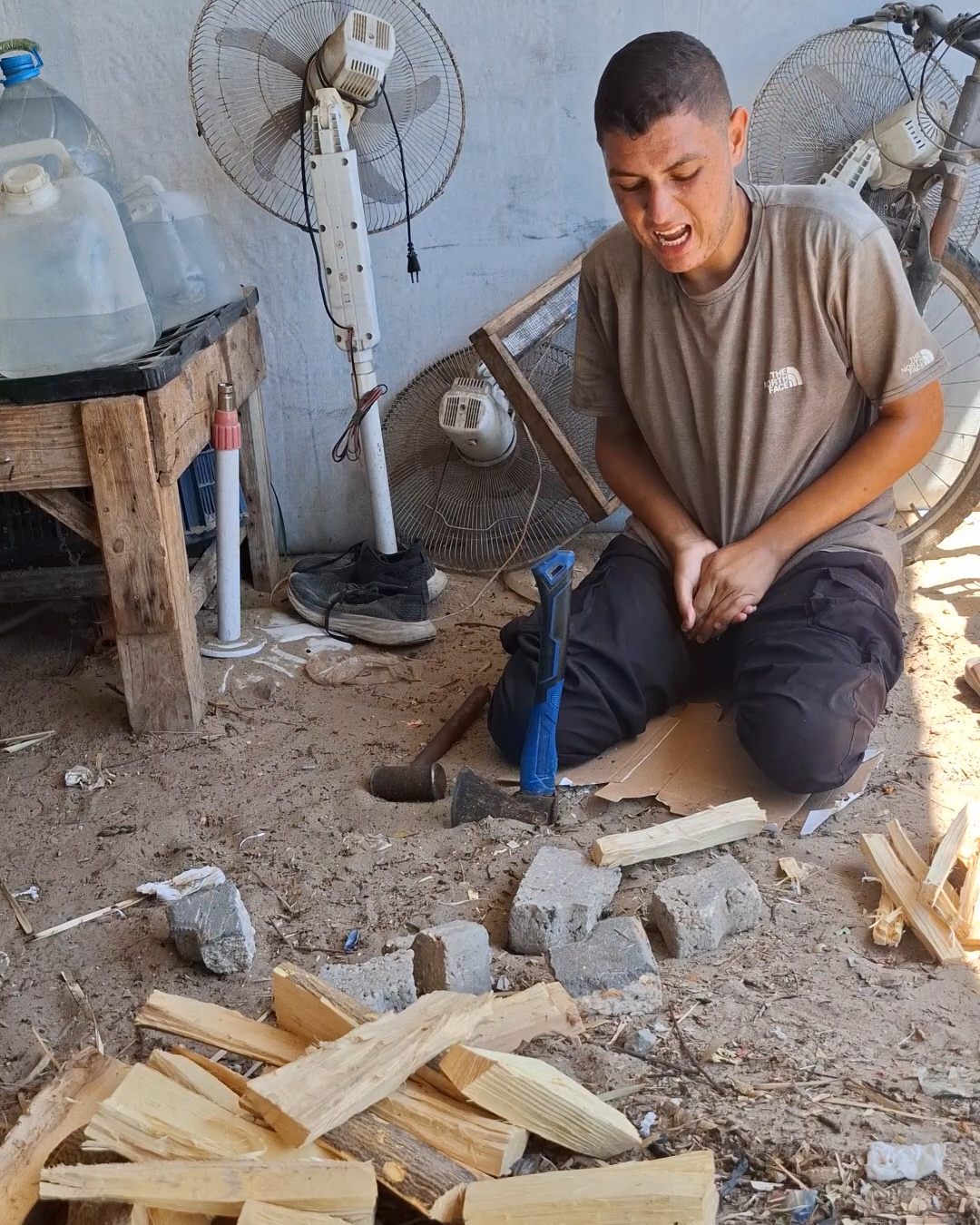
In addition to the wood, Mosab burns plastic as fuel, which is easier to come by and cheaper.
He says they know the fumes are bad for their health, but eating is more important.
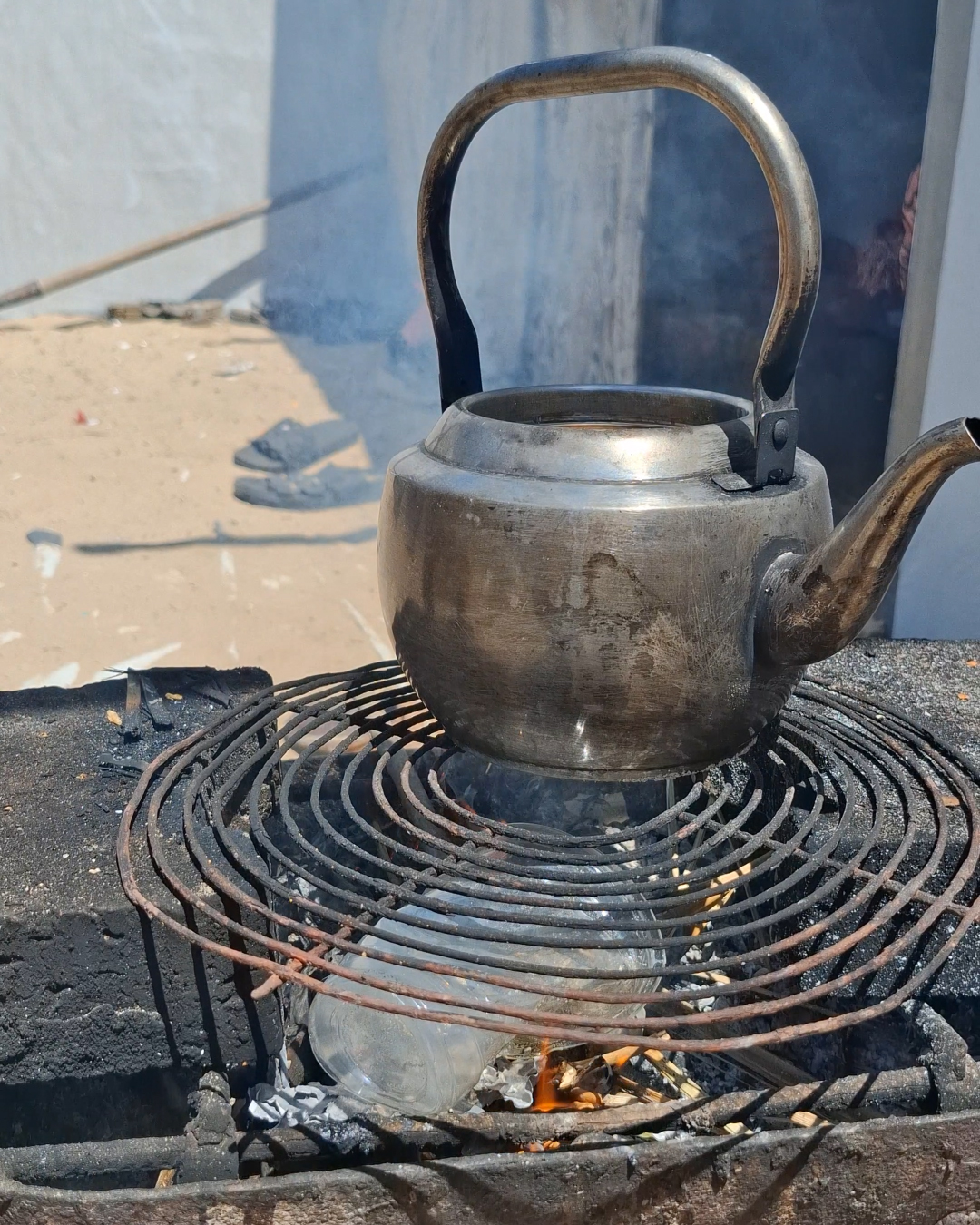
Mosab’s mum prepares the mujaddara, which he eats on the floor of the family’s tent.
“It tasted very good… but normally it would taste even better. We didn’t have enough onions,” he later says.
He knows that others in his camp will not eat at all, and says the disparity weighs on him.
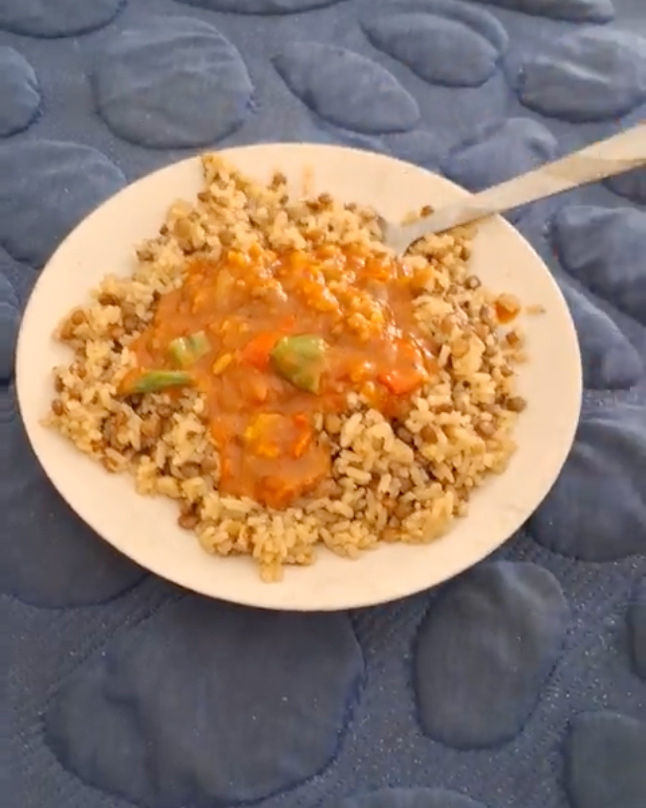
As the sun sets, he collects yellow-tinged, salty water from a well and heads to his seedlings next to his family’s tent in the west of the camp.
“I have no choice but to use it even though it harms the seedlings and the crops,” he says.
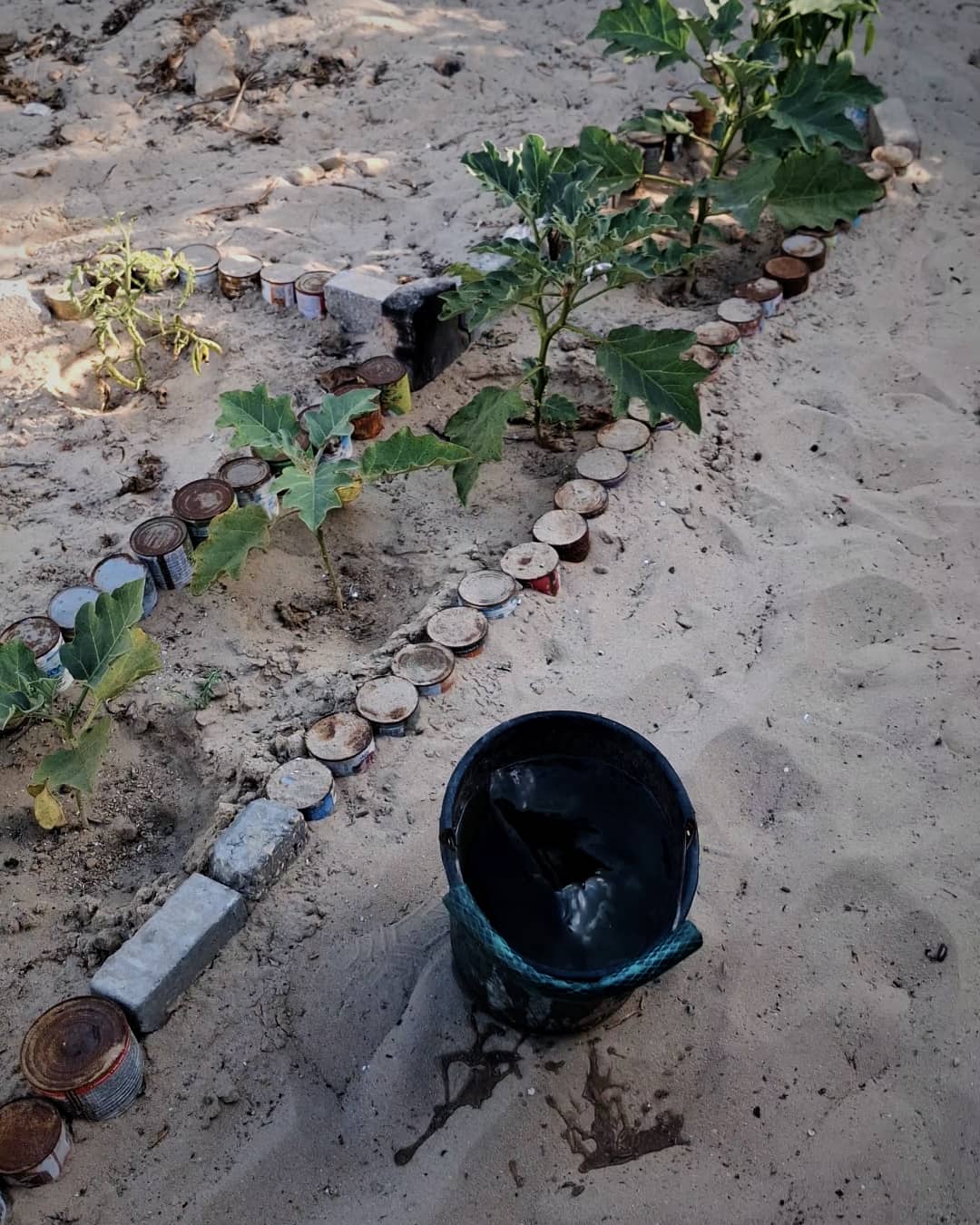
Mosab dreams of continuing his engineering degree once the war is over. As he prepares for another day of heading to the markets, he also dreams of a day when food is freely available in Gaza.
In the meantime, he says, “we just keep taking from the well and watering our plants”.
